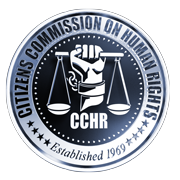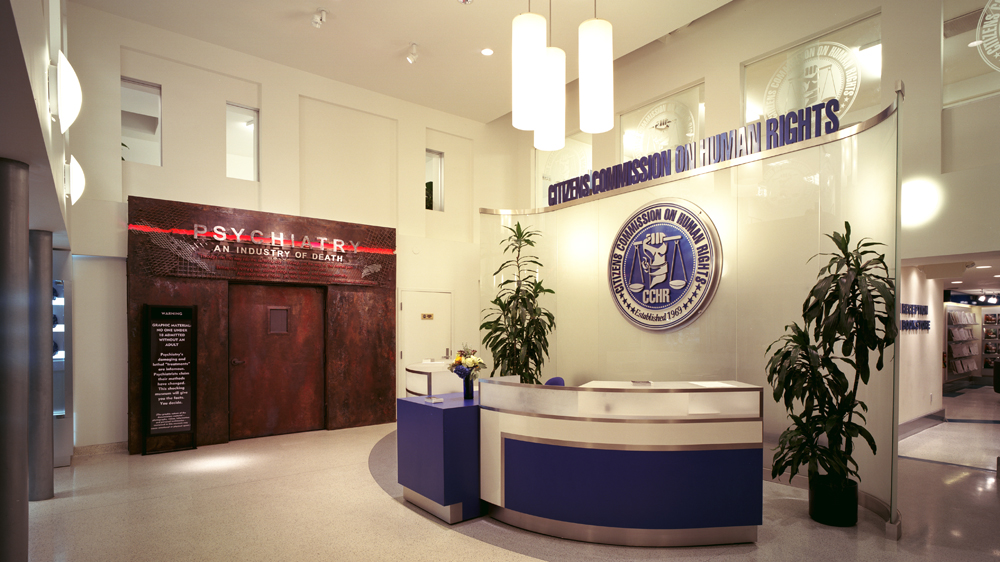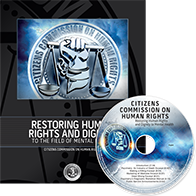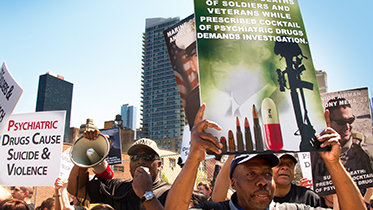Message from the President
Most people today have difficulty understanding the destructive impact psychiatry has on communities around the world.
For far too many, the lesson is learned only after a psychiatrist has destroyed some part of their life.
The destruction might come in the form of the death of their child due to long-term usage of a stimulant drug, prescribed for an invented psychiatric disorder called Attention Deficit Hyperactivity Disorder (ADHD). It could be the loss of a loved one at the hand of a gun-toting teenager prescribed a violence-inducing psychiatric drug and/or one who had undergone death education or anger management classes (as was the case in the Columbine school massacre in 1999). Perhaps it is the death of an elderly mother or father from electroshock treatment or an antipsychotic drug prescribed at a nursing home. It could be a child labeled mentally ill early in school, prescribed addictive, psychotropic drugs more potent than cocaine, who later becomes a hard-core street-drug addict because he could not tell the difference between a street drug and those prescribed to him.
At CCHR, we work continuously to educate you on the truth about psychiatry, providing information that psychiatrists would prefer you didn’t have. For example, in 2008, Dr. Nada Stotland, the president of the American Psychiatric Association, acknowledged that CCHR “influences our legislatures, our Food and Drug Administration, our schools, and our media as a moving force behind the unwarranted ‘black box warnings’” on the potentially lethal effects of psychiatric drugs. Note that in Dr. Stotland’s opinion, warning children, adolescents and young adults that could become suicidal while taking antidepressants—a fact the drug regulatory agencies the world over have determined is vital information—is “unwarranted.”
Only by providing all the facts about the risks of psychiatric treatment can we possibly reduce the number of victims who unfortunately learn this truth through personal tragedy.
A Complete Lack of Science
One of the most important things to know about psychiatry is the complete lack of science supporting its system of diagnosis or its treatments. Take, for example, the psychiatric “billing bible,” the Diagnostic and Statistical Manual of Mental Disorders, or DSM-IV. Not one of the 374 disorders described therein has ever been proven to exist by observable pathology or objective tests. Instead, a panel of psychiatrists arbitrarily defined symptoms of each mental disorder and then literally voted on their suitability for inclusion in the DSM. By this system, if a newly defined mental disorder loses the vote, it fails to make it into the DSM. The system is subjective and ambiguous; its terminology is ill-defined or altogether undefined.
In spite of such serious and fundamental flaws, this system is widely accepted as the benchmark for both judging human behavior and determining treatments in courts, prisons and schools. In many countries, the DSM forms the basis of mental health services billings to insurance companies and bogus “mental health screening.”
By medicalizing everyday problems, psychiatry has fraudulently labeled millions as mentally ill, and either forced or convinced them to adopt prescription psychotropic drugs as a routine part of their lives. As a result, psychotropic drug consumption has escalated with 100 million people worldwide now taking these drugs, 20 million of whom are children.
CCHR remains dedicated to exposing the scientific myths and hype with which psychiatry has managed to surround its diagnostic system and treatments. We work with medical doctors and other professionals that see it as their duty to ensure that government policy and regulations provide the strongest warnings about psychiatric treatments.
Our work aligns with the United Nations Universal Declaration of Human Rights, which reads, in part:
- “No one shall be subjected to torture or to cruel, inhuman or degrading treatment or punishment,”
- “All are equal before the law and are entitled without any discrimination to equal protection of the law,”
and - “Parents have a prior right to choose the kind of education that shall be given to their children.”
Psychiatrists violate these Articles on a daily basis.
Through psychiatrists’ false diagnoses, stigmatizing labels, easy-seizure involuntary commitment laws, brutal, depersonalizing treatments all over the world, thousands needlessly fall into their coercive system every day. It is a system that exemplifies human rights abuse and denies individuals their inherent rights.
Each year thousands of psychiatric victims or their families contact CCHR to report incidents of psychiatric harm. And it’s a litany of maltreatment: sexual abuse, brutal institutional treatment and conditions, hospital fraud, false imprisonment, patient deaths and even murder.









